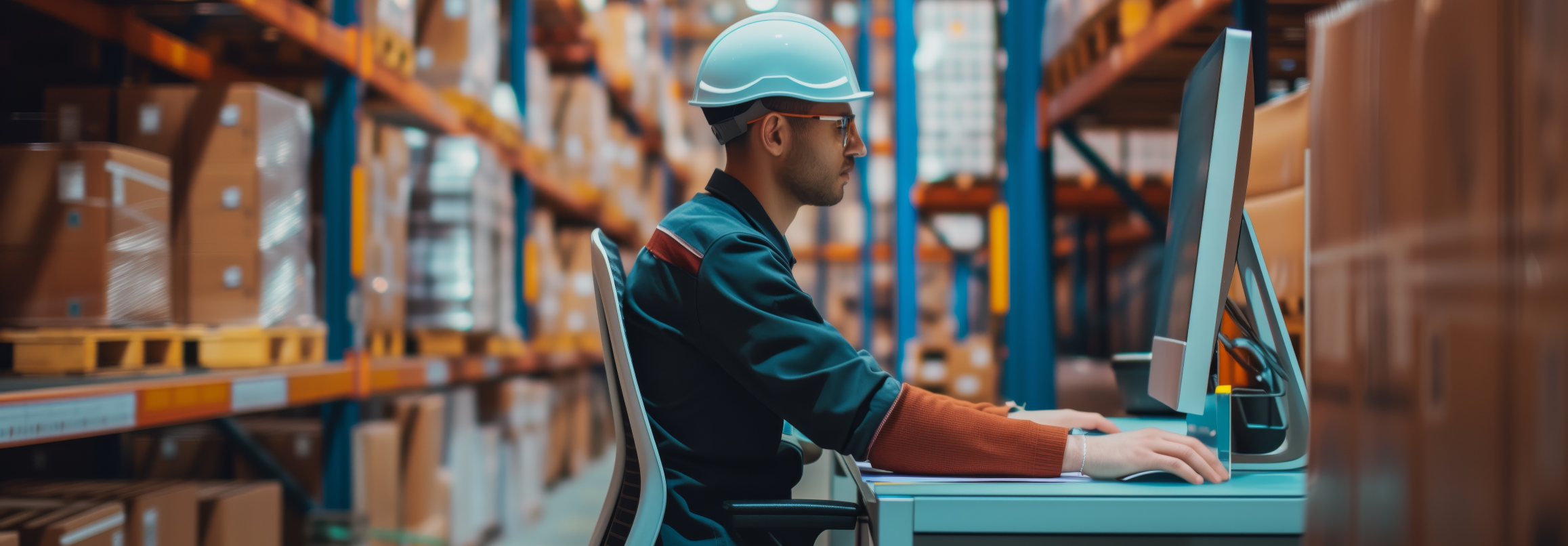Course Detail: LGM-100 - Global Logistics and Supply Chain Management in association with IATA [LGM 100]

Overview
Embry-Riddle Aeronautical University's (ERAU) Global Logistics and Supply Chain Management, part of a joint Logistics and Supply Chain Management Certificate with the International Air Transportation Association (IATA), explores the core of integrated logistics: the systematic management of activities associated with the delivery of goods and services to meet customer needs. Course content addresses the cross-functional management of a number of activities including sourcing, procurement, packaging, in-bound transportation, warehousing, inventory management, distribution, customer service, and reverse logistics where appropriate. Additional topics include the concept of life cycle cost, outsourcing, performance management, international logistics, and the role of web and Electronic Data Interchange (EDI) in managing the logistics information needs of the enterprise.
What You Will Learn
Upon completing the course, students should be able to demonstrate a comprehensive and broad-based understanding of:
- Global Logistics and Supply Chain Management, the history and evolution of logistics, and the role of logistics in the domestic and global economy.
- Systems theory, life cycle management, and life cycle cost in integrated logistics management, budgeting, cost analysis, and other financial techniques used to maintain financial control.
- The role of web and other technologies in managing the logistics needs of an enterprise.
- Customer service and the role of logistics in meeting customer needs including planning, sourcing, order processing, packaging, material handling, and distribution.
- Strategic purchasing, typical steps in selecting a supplier, the role of negotiations, and key characteristics of the "partnership" model.
- The five basic modes of transportation, the legally defined classes of carriers, the role and activities of the transportation management function, the purpose of key transportation documents, and the role of freight forwarders and other intermediaries in transportation management.
- The role of warehouses and distribution centers and evaluate alternative warehouse or distribution center designs.
- The site selection process and major factors that influence the optimal location of warehouses, plants, distribution centers and other key facilities.
- The importance of inventory turnover, the Economic Order Quantity (EOQ) concept, ABC analysis to assess inventory, and the role of Just-in-Time (JIT) inventory management in meeting the needs of an enterprise.
- International trade, including the use of trade specialists and other third party facilitators to manage international logistics operations, the role of tariff and non-tariff barriers and other forms of government control, and describe the growing need for logistics and supply chain security and what logistics professionals are doing to improve security
- Performance management, identify key logistics performance measures, and define the concept of performance-based logistics.
Key Topics

- Air cargo rates and charges
- Customer service
- Demand management
- Logistics and supply chain management
- Logistics controls and functions
- Logistics technology
- Packaging and material handling
- Procurement and international logistics
- Site selection methods
- Transportation management
- Warehouse management
Who Should Attend
This course is recommended for:
- All sales and marketing staff of cargo agents and air freight forwarders (consolidators)
- Sales, reservations, and acceptable staff of airlines, airport handling, and surface transportation companies
- Shipping department staff of manufacturers, wholesalers, importers, and exporters
- Junior and middle management staff of cargo agents, airlines, and manufacturers who wish to attend or refresh their knowledge of current international air cargo rating procedures
- Anyone wanting to update their knowledge of air cargo acceptance and rating procedures, or to enter the field of supply chain management
Certificate Awarded
An Embry-Riddle Certificate of Completion is awarded upon successful completion of the entire Logistics and Logistics and Supply Chain Management Program (6 courses). Students are also awarded the Air Cargo Professional (ACP) designation by IATA.
Course Format
This is a 100% online asynchronous self-paced course. Coursework is web-based with no additional software required, although a reliable internet connection is recommended. This course requires approximately 45 hours of study to be completed within 12 months of the purchase date (enrollment validity). After the enrollment validity expires, students will not have access to the course content and will not be able to take the exam.
Student performance is assessed by an examination. Please refer to the Exam Information below for more details.
Exam Information
The exam for this course is online and contained within the course itself. Once the exam is opened, it must completed in the time allotted. Work cannot be saved and completed later. Students should schedule enough time to complete the final exam without interruption. The timer will continue and the exam will automatically submit after the allotted exam time expires. For technical difficulties, please contact the ERAU Worldwide Office of Professional Education.


 Cart (0)
Cart (0)